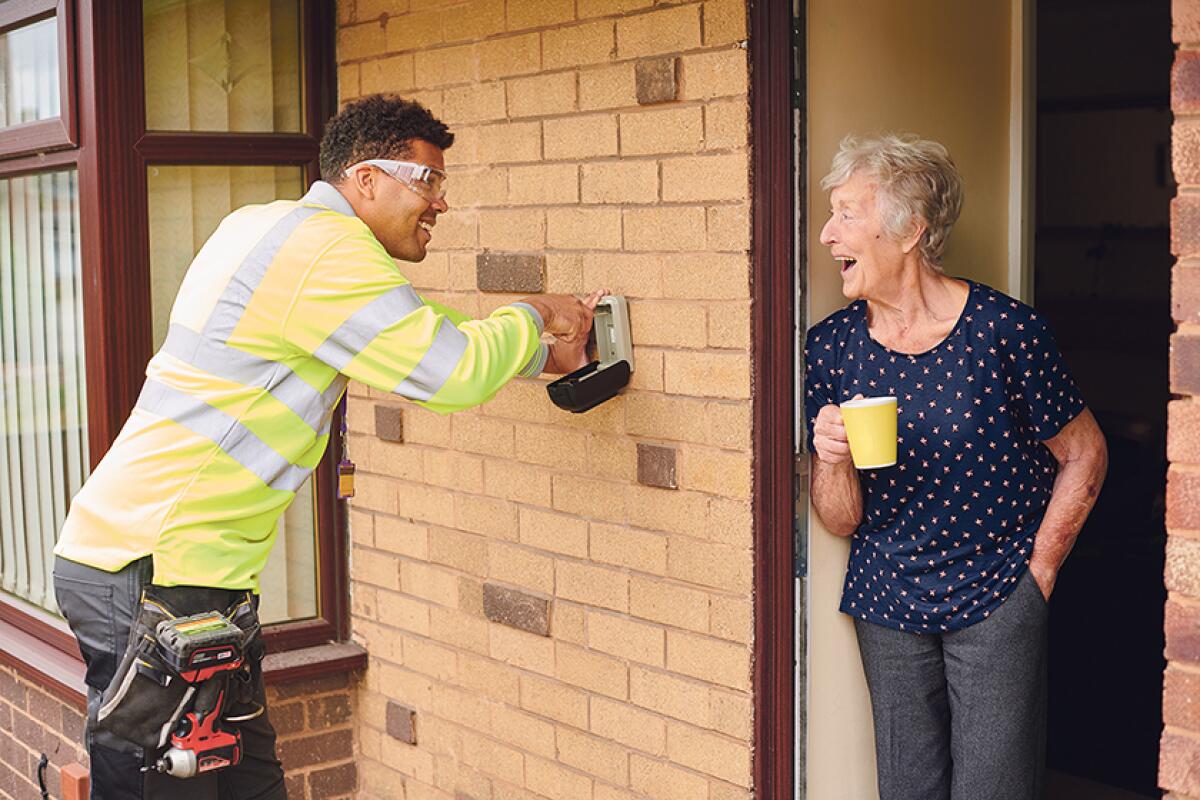Services @ Home: How to Choose, Feel Safe and Make a Connection

As we age, some things we may have handled with ease earlier in life have become more difficult. Or we are tired of spending all our energy on chores, like cleaning the house or mowing the lawn, when we could get together with friends, go to the theater, or take a day trip.
Lucky us: there are a lot of folks who are happy to do the stuff we do not want to do anymore. Type “handyman” in any online search engine, and hundreds of names pop up. Same for “house cleaner” and “personal shopper.”
How can we possibly find the right helper, one that is a good fit, reliable, will do what you’d like them to do, will be honest, and above all, will keep you safe? Home repair and enhancement
Normally, the best handyperson and cleaning people recommendations come from a neighbor or a local Facebook group. Referral agencies abound, too, although some of them are little more than advertising entities taking a cut of the pay.
Reading Google and Yelp reviews are important, but as we know, there will be conflicting opinions because people have different experiences - even professionals can have a bad day.
In California, handy people are not required to have a license and are likely not listed with an agency like the Better Business Bureau. Contractors are usually specialized and licensed and are more expensive. Whatever you decide, produce a contract specifying the work to be done and the agreed-upon cost, as well as a promise in writing that they will come back to do repairs if the work fails.
Beware of handyworkers or contractors who give a too-low estimate or unrealistic timeline for completing a project. And make sure you know who you are dealing with; get their full name, address, phone number or other contact information.
In Home-Help
Recently, while looking for the best helper for her senior mother, a friend talked to representatives of several senior help agencies and found that the services offered and hourly costs were similar for what she wanted: a companion who does housecleaning, grocery shopping and cooking, the laundry, and gives rides to appointments.
Most counties have compiled information on official web sites about available services, and some listings even include ratings. But it can still be a bewildering search, so we turned to James Thorman, the vice-president of Home Care for A Place for Mom, to explain how it works.
“A Place for Mom offers free advice and support for navigating the best senior and in-home options based on needs,” he said. “We connect families with local advisors who can offer personalized guidance and a breakdown of home care.” Home care aides offer a wide range of services that can simplify the day-to-day routine for seniors who prefer to age at home or who aren’t ready for transition to senior living, he said.
When coordinating care through a home care agency, ask questions,” Thorman said. “Ask what licensing and certifications the company requires and what training caregivers undergo.” When selecting a helper, he said, ask about their driving record, if they can cook and what hours and days they are available. Ask if they have experience with devices such as chairlifts, wheelchairs, and grab bars in case they become part of the needed care.
“Home care is highly personalized, so costs can vary widely,” Thorman said. “The agency will recommend a plan and an associated hourly rate. Most care agencies have a minimum number of hours requirement to account for costs like transportation and staffing.”
Companion home care is not covered by Original Medicare but is covered under long-term care insurance. Some Medicare Advantage plans include home care. Military veterans and low-income seniors on Medicaid also qualify for home care benefits.
Keep in mind, if you find an independent caregiver you really like, and decide not to use an agency, there’s a lot more work involved. The family will have to do the background checks and verify references. California labor law defines in-home workers as employees. The family (as the employer) will have to withhold payroll taxes and pay worker’s compensation insurance, offer paid sick leave, health insurance and unemployment benefits.
For more information , see “Complete Guide to Home Care” on aplaceformom.com.
Information on home care licensing by the California Department of Social Services can be found at cdss.ca.gov.
-Catherine Gaugh